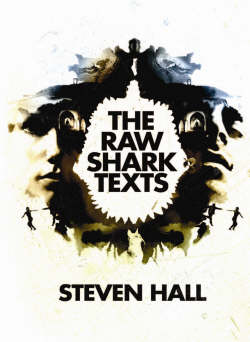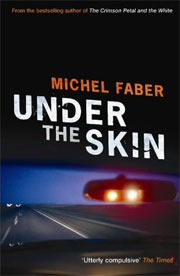This week, I finished the the first of three novels which are supposedly said to rival Tolkien for originality and depth of immersion. Written between 1940 and 1959, the unfinished series by Mervyn Peake captured the imagination of the public, and are widely known as the “Gormenghast” books. Good name for a Warcraft horde character by the way. Gormenghast is the name of the Fortress, and Titus Groan is its Earl. He was 1 year old at the end of the first book.
As you might expect, compared to a modern book, it’s fairly slow moving and wordy, and there are chapters containing the most frustrating of exchanges between grunting and gesturing individuals. It’s all very peculiar stuff, and unpredictable enough to keep up my interest. Having said that, I place it in the same boat as Don Quixote and Jonathan Swift; once you’ve read their first book, the rest is much the same and so I don’t think I’ll continue with the the other two. I’ll watch the BBC DVD if I can get a hold of it. My reading life is too short now.
I bookmarked some particularly ethereal paragraphs for quoting here as I wanted to demonstrate what a struggle some sections were. Here’s an example, though it’s not typical of the rest of the book.
“Through her, in microcosm, the wide earth sobbed. The starglobe sank in her; the colours faded. The death-dew rose and the wild birds in her breast climbed to her throat and gathered songless, hovering, all tumult, wing to wing, so ardent for those climes where all things end.”
Traumatised by his World War Two experiences, Peake later contracted Parkinson’s disease and died in 1968 whilst working on the early parts of the 4th in the series. I give him 3 stars for this one. Very original. What will become of that devious Steerpike character?



 I gobbled up this tale by Mario Vargas Lhosa about a masochist and his “bad girl” in only a few days, with a real life example (not mine!) in my mind about the allure of a haughty, unrepentant, and essentially insecure woman in my head to remind me that it really could be a true story. I think it sort of fell away at the end, and it felt awkward at times, but overall a delicious read, even though it will never be considered one his his better ones. 4 stars.
I gobbled up this tale by Mario Vargas Lhosa about a masochist and his “bad girl” in only a few days, with a real life example (not mine!) in my mind about the allure of a haughty, unrepentant, and essentially insecure woman in my head to remind me that it really could be a true story. I think it sort of fell away at the end, and it felt awkward at times, but overall a delicious read, even though it will never be considered one his his better ones. 4 stars. The major themes described were ones of kinship, dignity, coming to terms with events of the past, and finding wonderful things about the everyday. Universal stuff I suppose. The contrast between this and the previous book was a huge relief to me. Despite listing these ideas, I’m not sure in a week’s time that I’ll be able to remember much of it either, but for me it was like laying in a warm bath. The pages just flicked by effortlessly. It’s so lovely to discover another Australian writer whose back catalogue I can seek out. 4.5 stars.
The major themes described were ones of kinship, dignity, coming to terms with events of the past, and finding wonderful things about the everyday. Universal stuff I suppose. The contrast between this and the previous book was a huge relief to me. Despite listing these ideas, I’m not sure in a week’s time that I’ll be able to remember much of it either, but for me it was like laying in a warm bath. The pages just flicked by effortlessly. It’s so lovely to discover another Australian writer whose back catalogue I can seek out. 4.5 stars.
 Despite this, Peter Temple’s “The Broken Shore” was worth it – the story was pretty good. A flawed, hardworking policeman, recovering from a terrible accident is reassigned to light duties in far south-west Victoria. There’s a touch of non-mushy romance, and plenty of tawdry criminal elements to keep you distracted from the real culprits. Some nice attempts at weaving in some small town, low-income rural Victorian issues and portrayal of thuggish clans. There was a lot to like, though I continually thought of how it would have been done in a mini-series for TV, which was offputting. 4 stars.
Despite this, Peter Temple’s “The Broken Shore” was worth it – the story was pretty good. A flawed, hardworking policeman, recovering from a terrible accident is reassigned to light duties in far south-west Victoria. There’s a touch of non-mushy romance, and plenty of tawdry criminal elements to keep you distracted from the real culprits. Some nice attempts at weaving in some small town, low-income rural Victorian issues and portrayal of thuggish clans. There was a lot to like, though I continually thought of how it would have been done in a mini-series for TV, which was offputting. 4 stars.  Within a few days, I’d bought and read The Road, by Cormac McCarthy, inspired by long-term email compadre PoutineQ. It was right up my alley, utterly depressing (and hence redemptive!) but fascinating for its sense of danger and unrelenting bleakness. After awhile, I came to the conclusion that it was a bit of a one-trick pony show, because the same scenes were repeated again and again. The search for an end, or for “good people” was filled with minimal dialogue between a father and son, which, at least for me was fairly unremarkable and unrevealing. Perhaps I expected a little more after reading the pages of thrilled reviews, but it still had it’s moments. The horrifying scenes of cannabalism were offset with the stark “beauty” of the surrounding landscape. The sparse and direct language spoken in times of despair. The primal protectiveness of a father for a son. 4 stars also. It was very hard to put it down.
Within a few days, I’d bought and read The Road, by Cormac McCarthy, inspired by long-term email compadre PoutineQ. It was right up my alley, utterly depressing (and hence redemptive!) but fascinating for its sense of danger and unrelenting bleakness. After awhile, I came to the conclusion that it was a bit of a one-trick pony show, because the same scenes were repeated again and again. The search for an end, or for “good people” was filled with minimal dialogue between a father and son, which, at least for me was fairly unremarkable and unrevealing. Perhaps I expected a little more after reading the pages of thrilled reviews, but it still had it’s moments. The horrifying scenes of cannabalism were offset with the stark “beauty” of the surrounding landscape. The sparse and direct language spoken in times of despair. The primal protectiveness of a father for a son. 4 stars also. It was very hard to put it down. I finished Under the Skin by Michel Faber after a passionate 4 days and was completely enthralled by it. I don’t want to give much away, but suffice to say that when I described it to Kim she was fairly sickened and didn’t want to hear much more about it. The minutae of the day-to-day life of Isserley, a female driver who picked up only muscular male hitchhikers was gradually revealed in all its horror. There were shades of James Herbert and Jonathan Swift and the pacing was superb. Not for the squeamish though. 4.5 stars. I’ll be reading more of his for sure.
I finished Under the Skin by Michel Faber after a passionate 4 days and was completely enthralled by it. I don’t want to give much away, but suffice to say that when I described it to Kim she was fairly sickened and didn’t want to hear much more about it. The minutae of the day-to-day life of Isserley, a female driver who picked up only muscular male hitchhikers was gradually revealed in all its horror. There were shades of James Herbert and Jonathan Swift and the pacing was superb. Not for the squeamish though. 4.5 stars. I’ll be reading more of his for sure. The stories are surprisingly moral and conventional, and usually they deal with topics like the dissatisfied wealthy or couples who don’t communicate or understand each other very well at all. On the positive side, it was a quick read. 1.5 stars. Onto the next..
The stories are surprisingly moral and conventional, and usually they deal with topics like the dissatisfied wealthy or couples who don’t communicate or understand each other very well at all. On the positive side, it was a quick read. 1.5 stars. Onto the next..